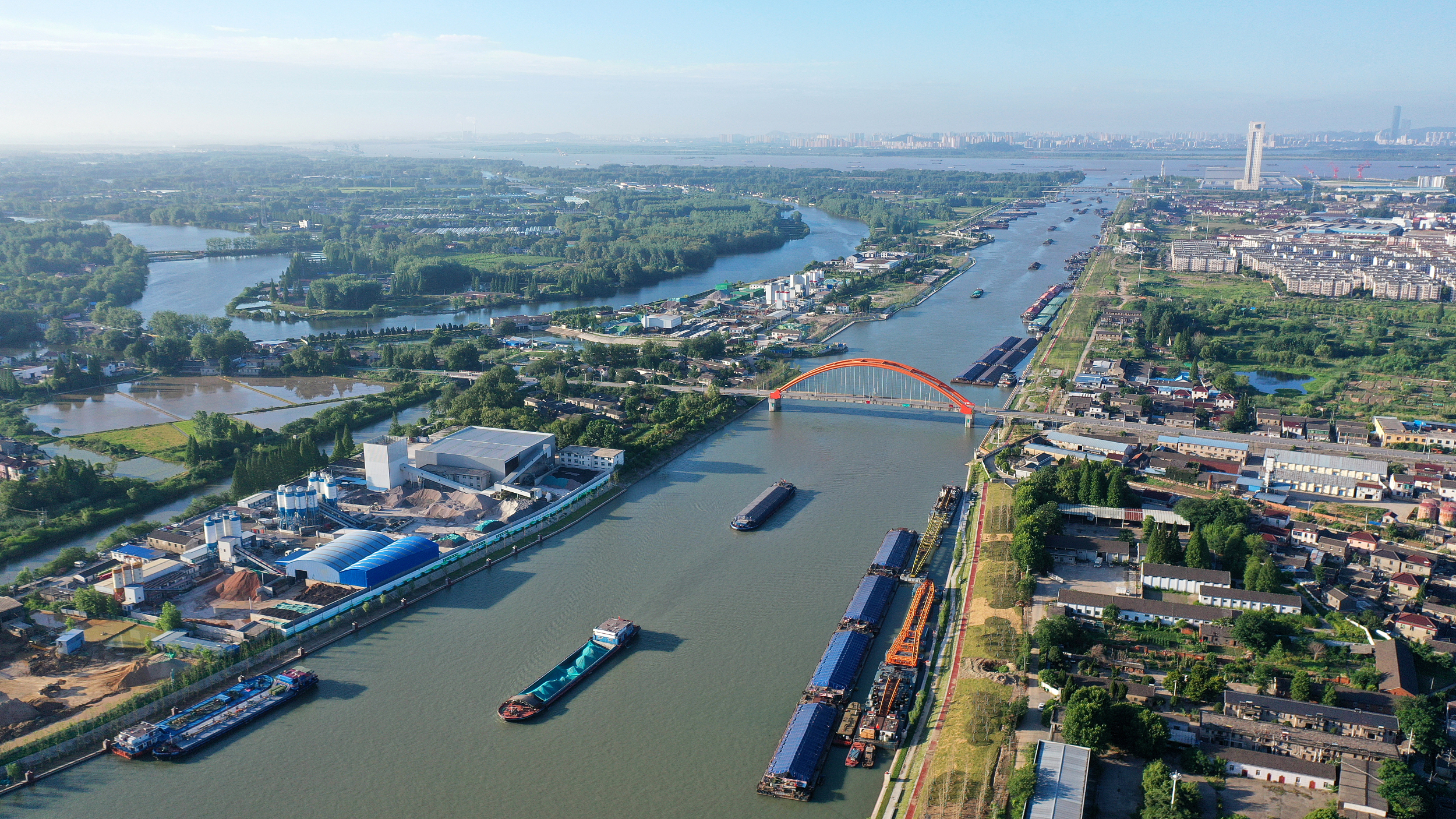
Yangzhou?section?of?the?Grand?Canal.?(PHOTO:?VCG)
By?ZHONG?Jianli
As a center of world canal culture, Yangzhou in east China's Jiangsu province hosted the 2022 World Canal Cities Forum on June 27.
Under the theme of "Heritage Protection and Sustainable Development of Canal Cities," guests from home and abroad shared their insights on promoting sustainable development of canal cities.
Yangzhou, an important node city of China's Grand Canal, provided solutions for protecting the world's longest man-made canal, which began construction way back in the 5th century BC.
The city has endeavored to achieve coordinated development of canal preservation, ecological protection, and shipping industry transformation.
Clean water and green surrounds are always the city's top priority in protecting the Grand Canal. It has greened the landscape, built fitness facilities, and relocated factories on both sides of the canal. Moreover, transport vessels are encouraged to be powered by clean energy sources to improve the water quality.
In 2014, Yangzhou, joining hands with 35 other cities in China, successfully had the Grand Canal inscribed on the UNESCO World Heritage Sites.
The city then formulated its Measures for Protecting the Yangzhou Section of the Grand Canal World Cultural Heritage, to preserve and utilize the heritage through integrated development of culture and tourism.
As a landmark project for building the Grand Canal national cultural park, the China Grand Canal Museum in Yangzhou has become a popular place for visitors to experience the canal's culture. The museum has attracted nearly 1.2 million visitors since its opening a year ago.
In addition, the digital cloud platform of Grand Canal national cultural park, which was built for two years, was officially unveiled during the Forum. Through such technologies as 3D modeling, virtual reality and big data, visitors can have more immersive experiences.
The trio will conduct a series of experiments in fields such as life science, fluid physics, combustion science and materials science. Notably, this is the first time that fruit flies have been taken on a Chinese space mission as experimental subjects. What made scientists choose fruit flies? What experiment will they undergo?
